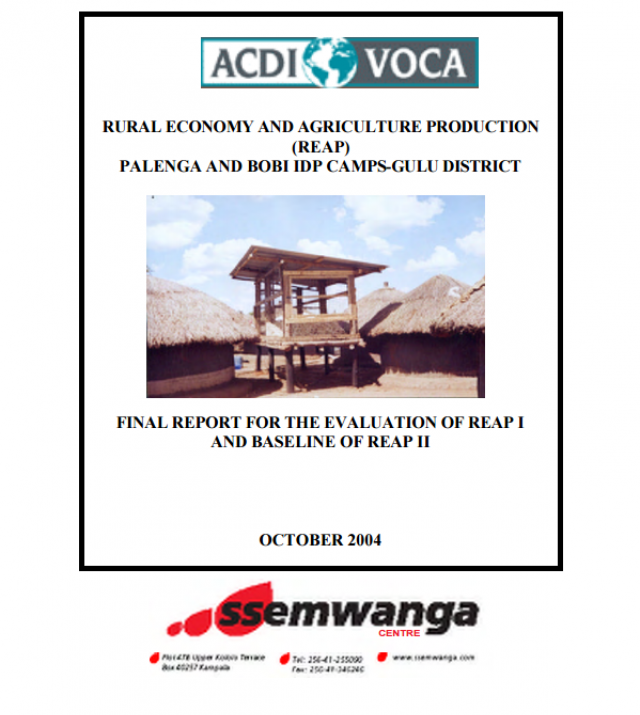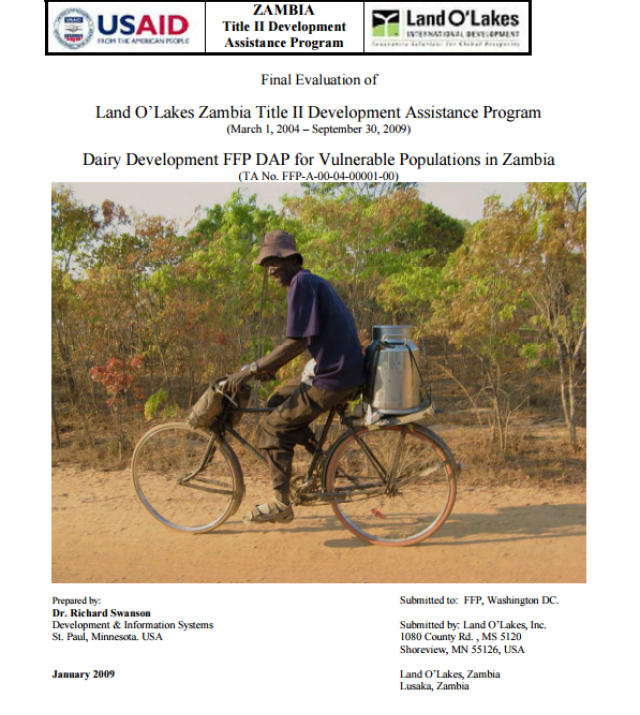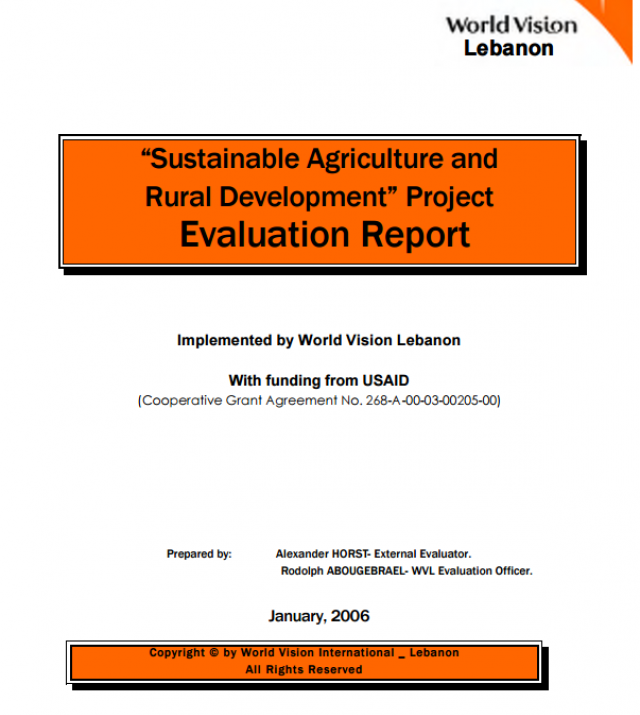
Final Evaluation of Soil Fertility Improvement & Conservation, DAP, World Vision

This report presents the results of the final evaluation of World Vision’s first five-year (February 28, 2000 – February 28, 2005) Development Activity Program (DAP) in Rwanda within four provinces: Gikongoro, Ruhengeri, Butare, and Byumba. Life of project cost was about $17,371,190. Limited monetization funds at the end of the program limited the scope and duration of field activities by five months, requiring an early end in September 2004. A follow-on DAP-2 is expected to begin October 1, 2004 for another five years, and the results and lessons drawn from this evaluation will be important in informing and providing direction to this new effort.
The project’s overall objective is a sustained increase in the availability of food and household income in the target households in these prefectures…Key activities...include the construction of 2,400 hectares of bench and progressive terraces with Food for Work support,…on-farm training in improved cultivation practices,…training in financial and business management and in marketing, and the provision of credit to help farmers begin their agribusiness projects.
Did the World Vision DAP project succeed in its goal to ‘improve the food security of rural households in Rwanda?' Among the thousands of households benefiting from the construction of bench terraces on their land, and the subsequent assistance of the project in helping them to ‘increase the value of’ this land by helping them to obtain improved seeds, organic and chemical inputs on this land particularly during the first two seasons after their construction – the answer would have to be a resounding “YES”. And this was particularly true when these bench terraces were constructed near the homes of the concerned families. Household and food security was most certainly increased in these locations to the extent that many have become commercially active, obtaining goats and cattle, renting more land, looking at higher value crops.

